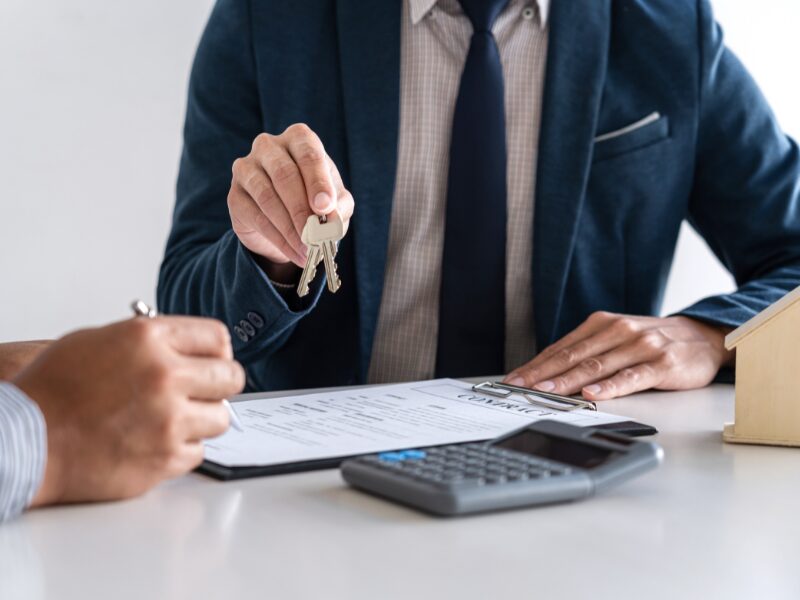Key Takeaways
- Self-employed borrowers can have irregular income and lack full financial documentation, but approval is still very achievable with the right approach.
- Lenders offer full-doc and low-doc home loan applications.
- Most lenders require at least two years of self-employed history, though some may accept one year with supporting evidence.
- Full-doc applicants need financials, ATO Notices of Assessment, and bank statements, while low-doc applicants may only need 2 recent BAS statements or an accountant’s letter (if available).
- A strong credit history and genuine savings will improve your chances of loan approval when purchasing property under a low-doc application.
- Specialist and non-bank lenders may offer better flexibility for freelancers, sole traders, and recently self-employed individuals.
- Working with an experienced mortgage broker like Dark Horse Financial can help match you with lenders who are more flexible with self-employed applicants.
Securing a home loan is a significant milestone in anyone’s life, but for self-employed Australians, the process differs from typical home loans sought by PAYG employees. Without the standard payslips and employment history that employees can provide, self-employed individuals must offer different requirements to demonstrate their capacity to repay a loan.
The good news? Qualifying for a home loan when self-employed in Australia is entirely achievable. This article explains the eligibility criteria, required documentation, and helpful tips to boost your chances of home loan approval.
Understanding Home Loan Eligibility for Freelancers and Sole Traders
Lenders typically look for consistent income and employment stability when assessing a borrower’s capacity to repay a loan. Self-employed applicants can experience fluctuating income, irregular contracts, or complex business structures, all of which can make it harder for lenders to assess risk. However, many lenders offer tailored options, including self-employed home loans with both full-doc and low-doc documentation options.
Understanding Self-Employed Home Loans
A self-employed home loan is not necessarily a different product but rather a standard home loan with adjusted documentation requirements. Borrowers can apply through two main application types:
1. Full-Doc Loans
These are the standard home loan products and are often the best choice if you can provide complete financial documentation.
2. Low-Doc Loans
Low-documentation loans are designed for self-employed borrowers who may not have the full suite of paperwork required for a full-doc loan. These loans usually come with slightly higher interest rates and loan-to-value ratio (LVR) maximums of 80%.

Home Loan Eligibility for Self-Employed
To qualify for a home loan as a self-employed person in Australia, lenders typically look at:
- Minimum trading history: Most lenders require at least 2 years of self-employed history. Some may consider 1 year or less if your previous employment was in a related field.
- Proof of income: Demonstrating consistent income over time is important to demonstrate the capacity to repay the loan.
- Credit history: There are bad credit loan options, but a good credit history provides access to more lenders and lower rates.
- Deposit: Ideally, a 20% deposit is required for purchases (or 80% LVR max for refinances), but some lenders will offer LVRs above 80% for low-doc loan products.
What Documents Are Needed for Self-Employed Home Loan Approval?
For Full-Doc Applicants
If you have complete records and at least one year of full financials, applying as a full-doc borrower will offer you more lender options and better interest rates. You’ll typically need:
- ABN and GST registered for at least 12 months – You must typically have held your ABN for at least 12-24 months.
- Financials: Including profit and loss statements and a balance sheet for the last 1–2 financial years.
- Notices of Assessment from the ATO: Your individual ATO assessments.
- Personal and business bank statements: Generally for the last 6 months to demonstrate income and expenses.
- Credit card and other loan statements: To demonstrate existing credit is being managed to an appropriate standard.
For Low-Doc Applicants
If you’re newly self-employed or don’t have full financials available, you may apply for a low-doc home loan. Required documents often include:
- ABN and GST registration details: You must typically have held your ABN for at least 12-24 months.
- Last 2 BAS statements: These help demonstrate your business’s cash flow and turnover.
- Letter from a registered accountant: An accountant’s letter verifying your income and business status can significantly strengthen your application, though these are more challenging to secure nowadays.
How Do Lenders Assess Income for Self-Employed Applicants?
Lenders take a varied approach when evaluating self-employed borrowers. Instead of looking at regular payslips to determine income, they may:
- Average your income over two financial years.
- Use the lower of the two years if income is declining.
- Add back allowable expenses if your mortgage broker identifies these add backs they could include non-recurring costs, depreciation, or interest payments, and this will help you arrive at higher “assessable income” for stronger servicing.
Can I Get a Home Loan With One Year of Self-Employment?
Many lenders will require self-employed individuals to have at least 2 years of trading history. That said, some lenders will accept applicants with just 1 year of trading history, particularly if:
- You previously worked in the same industry.
- Your business is performing well.
- You have substantial savings or a large deposit.
- You apply through a low-doc lender that is open to broader qualifying criteria.
However, having 2 full years of income documentation that shows consistent income for servicing will provide you with the most lending options with the lowest rates.

Tips to Improve Home Loan Approval Chances When Self-Employed
Even if you’re confident in your ability to make loan repayments, following these best practices can increase your chances of approval:
1. Maintain a Good Relationship With Your Accountant
Your accountant will prepare your financials and may provide a letter for low-doc applications, though this is becoming harder to secure recently. If your accountant is responsive and provides accountant letters, maintaining a good relationship with them can make a difference with low doc lenders.
2. Save a Larger Deposit
The more you can contribute upfront, the less risk to the lender. A deposit of 20% or more helps you avoid LMI and that means you avoid the insurer’s assessment that could be different to the lenders.
3. Maintain a Good Credit Score
Pay your bills, loans, and credit cards on time. There are bad credit options, but a higher credit score will give you access to more lenders at cheaper rates.
4. Limit Existing Debts
High levels of personal or business debt can reduce your serviceability. Lower limits on credit cards and limit applications for car finance or personal loans before applying..
5. Engage with an Experienced Broker
A lending expert like Dark Horse Financial can help you find the best home loan lenders for self-employed Australians. The best lender can meet your needs and provide the best rates and terms possible for your financial position.

Frequently Asked Questions
How can I qualify for a mortgage if I’m self-employed?
You can qualify for a mortgage with either a full doc or low doc application. For a full doc application, you’ll need to show capacity to repay the loan with profitability recorded on your financials. You will also need to provide your ATO Notice of Assessment, ID and statements related to existing credit. Low doc loans will either require your last 2 BAS or an accountant’s letter to demonstrate servicing for a loan.
What income proof do self-employed people need for a home loan?
This depends on whether you’re applying for a full-doc or low-doc loan. Full-doc applicants need their ATO notice of assessment, bank, credit card, and savings statements, and financials. Meanwhile, low-doc applicants may only need BAS statements or an accountant’s letter.
What is the minimum trading history for a self-employed mortgage?
Most lenders require two years of trading history. However, some accept one year, and other lenders will make an exception for time in business, especially if you can demonstrate a continuation of industry.
How do lenders assess income for self-employed applicants?
Lenders look at your income and may average your income over the past two years. Add-backs such as depreciation or one-off expenses may be considered to improve your assessable income.
Final Thoughts
With the right planning, paperwork, and help, it is very possible to get a home loan in Australia if you’re self employed. Knowing the lending criteria and getting ready for them can help you save time, lower your stress levels, and increase your chances of getting the property of your dreams.
Get the loan you need by working with a mortgage broker who has helped business owners in the past. A good credit score and a low LVR are both good things that can help you get approved. However, if your credit isn’t perfect, there are still options.
Find the Right Self-Employed Home Loan
Dark Horse Financial helps self employed Australians find the best financial solutions for their specific needs. We have a team of experts who can help you through the whole process. Are you self-employed and ready to look into your home loan options? Get in touch with us today for a consultation.
Disclaimer: Loans and the benefits associated with them are only available to those who have been approved. The information provided on this page is general and does not consider your individual circumstances. It is not meant to serve as a substitute for professional advice, and you should not rely on it for any decisions. Always consult with a professional regarding finance, tax, and accounting matters before making any choices or taking action.





